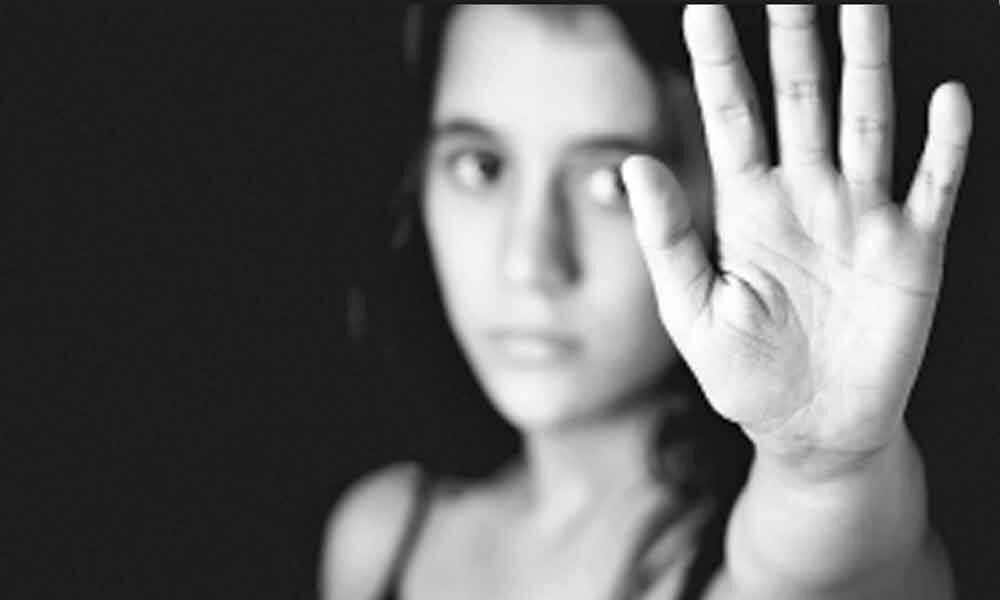Mute victims behind closed doors

Even as several activists, human right organisations and political outfits cry foul over the growing number of attacks on women, domestic violence and dowry deaths continue to be reported unabatedly
Even as several activists, human right organisations and political outfits cry foul over the growing number of attacks on women, domestic violence and dowry deaths continue to be reported unabatedly.
Though most of these cases are reported from urban areas, innumerable cases of violence against women go unreported in India's distant villages.
Domestic violence can take place in a number of forms including physical, verbal, emotional, economic, religious aspects.
The act of domestic violence towards women is a human rights violation as well as an illegal act under Indian law.
Though violence against women are widely reported, contrary to common belief, there are a growing number of men who are at the receiving end of harassment and face psychological and physical abuse by women.
Men's rights' activists in India have been arguing that some domestic violence laws in the country are discriminatory against men. Sadly, domestic violence against men in India is not recognised by the law as well.
Domestic violence in India includes any form of violence suffered by a person from a biological relative, but typically is the violence suffered by a woman by male members of her family or relatives.
It could be defined as any act of gender-based violence that result in physical, sexual or mental harm or suffering to women.
According to the information collected by National Family and Health Survey-3, it is stated that overall one-third of women aged 15-49 have experienced physical violence and about 1 in 10 has experienced sexual violence; in total, 35 percent has experienced physical or sexual violence.
This figure translates into millions of women who have suffered, and continue to suffer, at the hands of husbands and other family members.
Domestic violence has serious economic, social and health consequences – not only for women and children, but also for the wider family.
It is a social evil that is all around us. It's high time that we stop ignoring it and start equipping ourselves to deal with it.
Often violence against women at home is seen as a private matter of families in India. Reporting the matter to official sources is the first step towards ending the silence around domestic violence.
The risks involved in this ranging from non- cooperation by families, humiliation in the society to retaliatory escalation of violence may hold back the victim from approaching authorities.
But, constant sufferings will deteriorate the mental, physical and emotional health of the person.
It would be beneficial to bring forth the issue as a social problem than burying it in the private recesses of home, to overcome the helplessness and trauma experienced by the victim.
There are mainly three laws in India that deal directly with domestic violence:
1. The Protection of Women from Domestic Violence Act, 2005: The Protection of Women from Domestic Violence Act, 2005 is a civil law that provides protection to women, from men in the household.
It also provides that an aggrieved may also file a complaint against a relative of the husband or the male partner. This law not only protects women who are married but also protects women in live-in relationships, as well as family members including mothers, grandmothers, etc.
Under this law, women can seek protection against domestic violence, financial compensation, the right to live in their shared household, and they can get maintenance from their abuser in case they are living apart.
This law ensures that women do not get kicked out of their own homes and are able to sustain themselves, if they have been abused. It is also meant for protecting women from their abusers.
A magistrate can pass a protection order under the Act to ensure the abuser doesn't contact or get close to the survivor.
2. The Dowry Prohibition Act: This is a criminal law that punishes the taking and giving of dowry. Under this law, if someone takes, gives or even demands dowry, they can be imprisoned for six months or they can be fined up to Rs 5,000.
3. Section 498A of the Indian Penal Code: This is also a criminal law, which applies to husbands or relatives of husbands who are cruel to women.
Cruelty refers to any conduct that drives a woman to suicide or causes grave injury to her life or health including mental health and also includes harassment in the name of dowry.
If convicted, the guilty can be sent to jail for up to 3 years under this law.
The issue of the laws being misused in India was highlighted recently when the Supreme Court essentially identified them as the victims in domestic violence cases.
The judges weren't making the law gender neutral but stated that Indian women were filing inaccurate claims of domestic violence.
The Madras High Court Bench had observed earlier that Protection of Women from Domestic Violence Act, 2005 suffers from inherent flaws which tempt women to misuse their provisions and men to dread being prosecuted under the law without any rhyme or reason.
The judge had also pointed out that a similar trend of misuse was observed in the case of Section 498A of the Indian Penal Code. It forced the Supreme Court to term such misuse as 'legal terrorism.'
Dr Anjana Kannankara (The writer is Director, TGL Foundation, and editor, Anthropology Today, an international journal)














